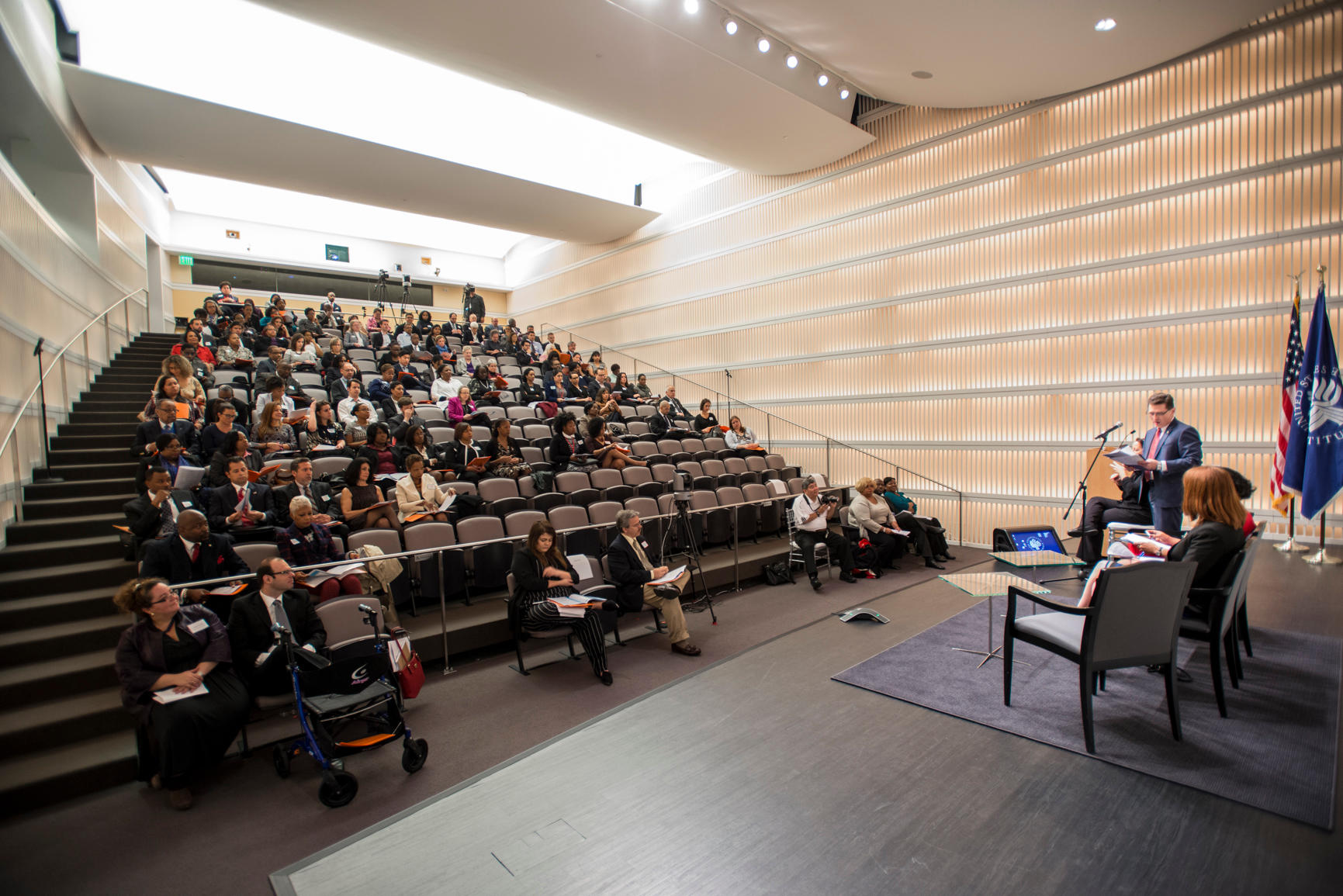Family Self-Sufficiency Data Center

To improve outcomes and make efficient use of scarce taxpayer dollars, state and local agencies that provide services to low-income families are increasingly looking to incorporate better data into their policy and program decisions. High-quality data will support research to build evidence around what works to improve self-sufficiency. The Family Self-Sufficiency Data Center (FSSDC) was established to help states better use data and to increase the amount and quality of data available for research related to family self-sufficiency. The relevant programs include Temporary Assistance to Needy Families, Supplemental Nutrition Assistance Program, workforce development and training programs, early care and education, and health insurance.
The FSSDC was a partnership between the University of Chicago Harris School of Public Policy, Chapin Hall at the University of Chicago, NORC at the University of Chicago, and Orlin Research. The co-principal investigators were Robert Goerge and Scott Allard, both recognized experts in family self-sufficiency research. The team has expertise in executing data sharing agreements, data management (including cleaning, linking, and visualizing data), data analysis, and communicating and applying findings from data. Together with funding and leadership from the Office of Planning, Research & Evaluation (OPRE) and input from the Administration for Children and Families (ACF) at the U.S. Department of Health and Human Services (DHS), the FSSDC provided research and resources around the promotion, use, and dissemination of family self-sufficiency data in a project funded from 2013 to 2019.
Work of the Family Self-Sufficiency Data Center
The FSSDC partnered with researchers, policymakers, and administrators to answer fundamental policy and program questions and build knowledge to facilitate translations into better policy and practice. The FSSDC worked toward this mission through several core projects and functions, including data support and technical assistance, outreach and collaboration, research, and dissemination of FSSDC work through written products.
Data support and technical assistance: The FSSDC provided modeling, analytic resources, and technical support to both data providers and users, targeted at issues of family self-sufficiency. We partnered directly with a set of pilot states to assess data quality, restructure data, examine caseload dynamics and churn, and explore specific policy questions around issues such as employment mandates for food stamp recipients. We also generated publicly available resources, including cross-state comparative analyses and data models and code to build the capacity to use data at the state level.
Code Sharing via GitHub: The FSSDC made available programming code with state agencies on a public website providing tools and information. This allows users to access code and also contribute to the site. Sample code is intended to assist with data reshaping, analyses of caseload churn, and tracing trends in program participation.
NORC developed code for the Data File Orientation Toolkit available from this website. This code supports researchers with readily assessing data quality of administrative data files using best practices from the literature. The NORC team won a Best Paper Award for their research at the 2018 Administrative Data Research Facilities (ADRF) Network Research Conference. NORC has since developed an internally available Data File Orientation Dashboard using R Shiny to enable data quality assessments with a point-and-click interface.
Outreach & Collaboration: The FSSDC worked to engage a broad community of state partners and researchers, fostering connections and spurring innovation in self-sufficiency data analysis and research. We worked directly with states hosting workshops that brought together state agency staff from around the country for sessions focused on administrative data usage and sample analyses with TANF, SNAP, employment, and child care data sources.
The FSSDC also disseminated work through conference presentations and collaborated with federal agencies and other stakeholders nationally via participation in OPRE’s Family Self-Sufficiency and Stability Research Consortium, which includes the Scholars Network and the Advancing Welfare and Family Self-Sufficiency Research Project (Project AWESOME).
Research: We developed new research resources for a broad community of state partners and researchers regarding data models, structuring data, analyses, tools, and data sharing.
Learn More About the Toolkit
Download the FSSDC Data File Orientation Toolkit for assessing data quality of administrative data files:
Related Tags
Project Leads
-
Robert M. Goerge
Senior Research FellowPrincipal Investigator -
Rupa Datta
Vice President & Distinguished Senior FellowSenior Staff -
Zachary Seeskin
Senior StatisticianSenior Staff









